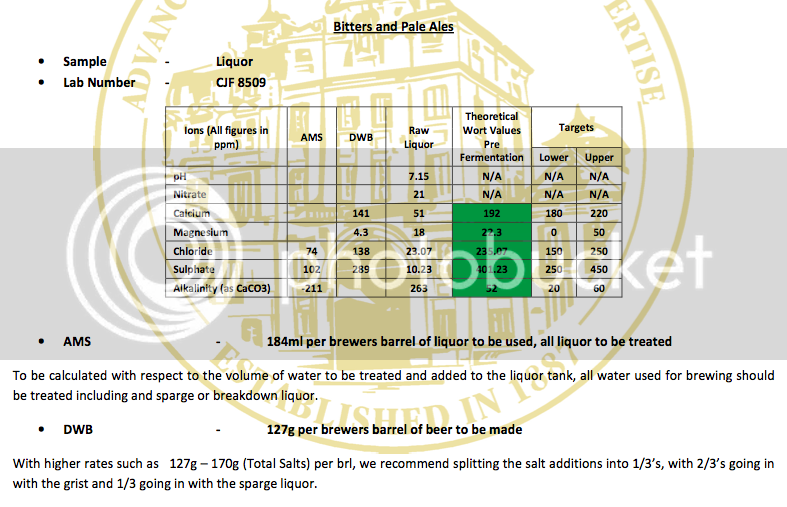loady
[Superlative Сasual Dating Real Women]
I am brewing today and going to make my house beer but i am going to treat the water this time, i have used several calculaters along with my full water report, i have been aiming for burton trent water as i have nothing else to i can really see to aim for..im just really experimenting...i have found some quite differing addition levels between different programs,is this normal ?
I am boiling up 80lt of water, and have added 35gm of gypsum to the HLT and 2.8gm of salt, it is saying to add epsom salts but i am not sure where i would add that, in fact i am not sure where i am supposed to add any of these additions, should they be going into the whole batch of water or just the sparge water..i was also advised to add lactic acid to the sparge water..does that sound like a good plan ?..i have another two brews to do today at 25lt each so any advice i can apply to those will be helpfful.
heres my water report.... http://www.waterplc.com/waterquality/L21.pdf
I am boiling up 80lt of water, and have added 35gm of gypsum to the HLT and 2.8gm of salt, it is saying to add epsom salts but i am not sure where i would add that, in fact i am not sure where i am supposed to add any of these additions, should they be going into the whole batch of water or just the sparge water..i was also advised to add lactic acid to the sparge water..does that sound like a good plan ?..i have another two brews to do today at 25lt each so any advice i can apply to those will be helpfful.
heres my water report.... http://www.waterplc.com/waterquality/L21.pdf




